Dear Berkeley Journalism Community,
It’s such a beautiful thing to see the future being created every day at Berkeley Journalism. Getting to know the students, faculty and staff, seeing the work they showcase and publish, sitting in on classes and listening to extraordinary faculty inspire their students to do more and better: The future of journalism is being built here, every day.
It gives us hope and a sense of what’s possible. We hope you feel that, too.
That hope is perhaps most evident in news that the School was awarded a $25 million appropriation from the state of California in September to strengthen local news coverage. In what is believed to be the largest state allocation ever made to support local journalism, the new Berkeley fellowship program will award up to 40 fellows per year for as many as three years a $50,000 annual stipend to supplement their salaries while they work in California newsrooms, covering communities in dire need of strong local journalism.
We recently hired nonprofit journalism leader Christa Scharfenberg, whose experience building and sustaining major nonprofit newsrooms will be critically important for us in creating this hugely ambitious program from scratch, with the expectation to begin awarding fellowships in the spring.
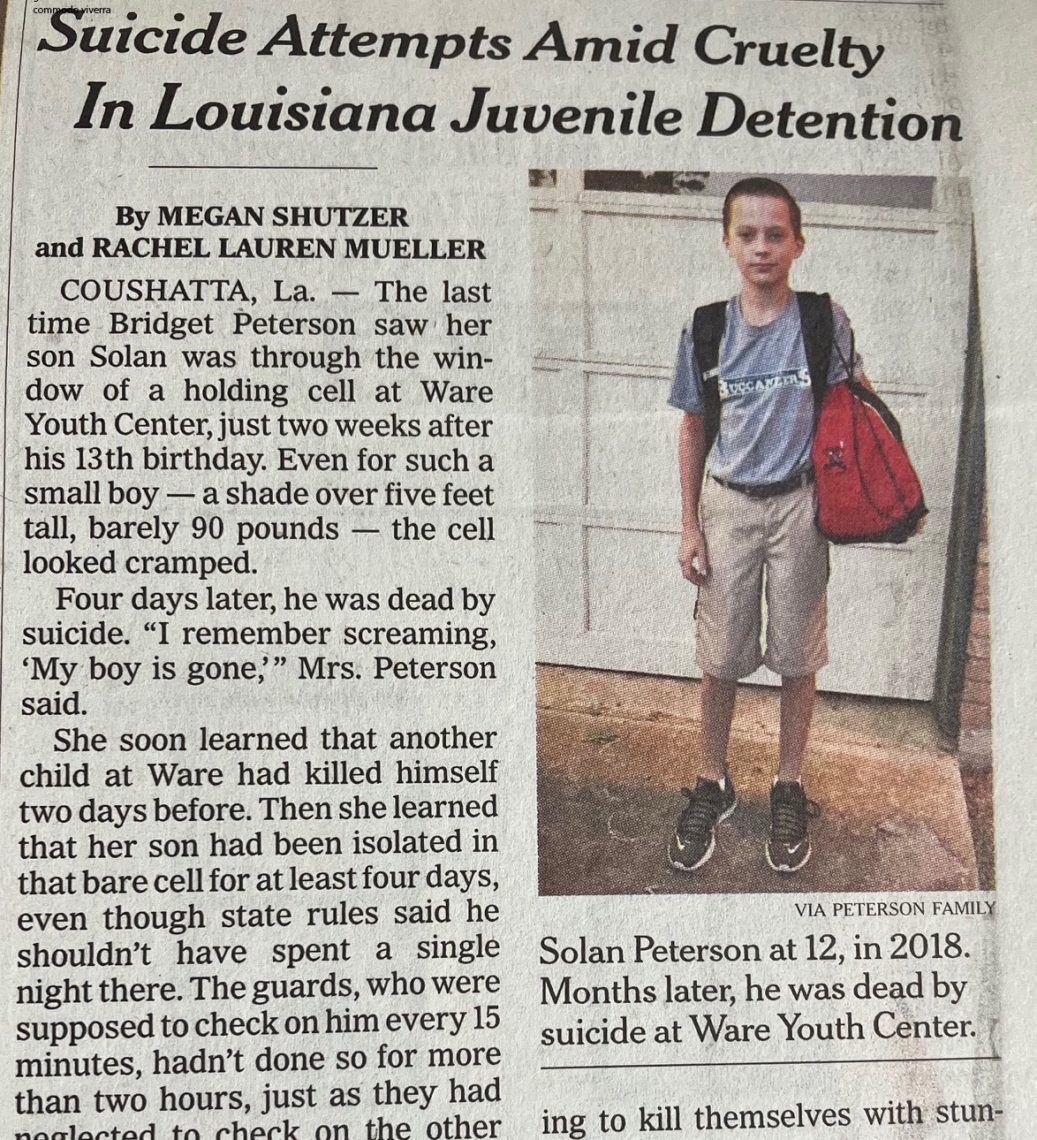
Publishing opportunities at the school continue to expand. In the last month alone, two front-page stories ran in the nation’s top newspapers – one already instigating a state’s inspector general investigation and the other highlighted by The Washington Post’s editorial board calling on states to change requirements for collecting and reporting information about nonfatal police shootings.
Alums Meg Shutzer and Rachel Lauren Mueller‘s (‘20) 6,400-word investigation into a horrifying legacy of abuse at a Louisiana juvenile detention center ran on the front page of The New York Times. Just how powerful was this reporting? The New York Times gave it four full pages.
I could not be more grateful to my colleague and friend Professor David Barstow for the way he served as their mentor and editor these last three years.
In October, Brian Howey’s (‘22) “The unseen toll of non-fatal police shootings” published on the front page of The Washington Post. Howey collaborated with Wesley Lowery, the Post’s former national correspondent who has served as a special projects editor at the Investigative Reporting Program. Bashirah Mack (‘22) and Katie Licari-Kozak (‘22) also contributed reporting. Read the backstory here.
I’m proud to introduce you to our new Dean’s Fellows Emma Garcia, Celeste Hamilton Dennis, Bria Suggs and Jeremiah Rhodes. This program for first-generation college students, which began in 2021 through private philanthropy, counters the widespread income and access disparity in newsrooms by providing guaranteed funding for tuition and fees.
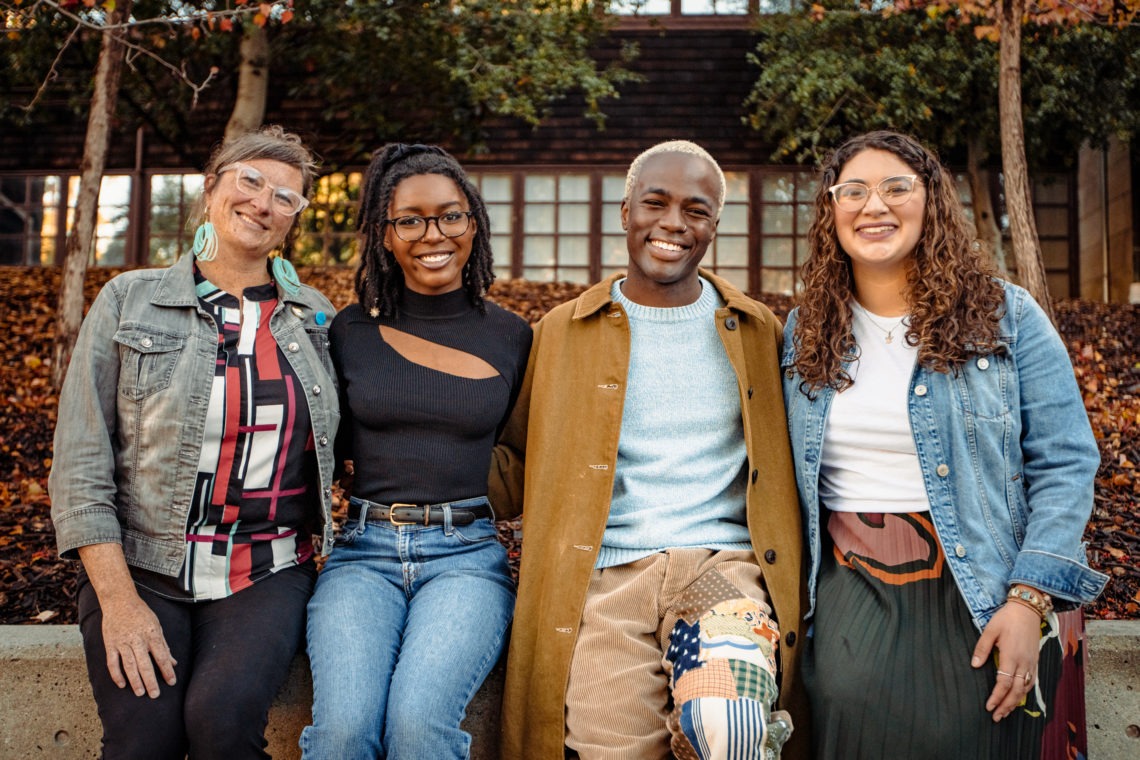
From left to right: Celeste Hamilton Dennis, Bria Suggs, Jeremiah Rhodes and Emma Garcia. Photo Buddy Terry ’23
The fellowships are made possible by the generosity of our Advisory Board members Steve Silberstein (BA Economics/MLS) and Bill Whitaker (MJ ’78 & ’17), the Brooks-Mathews Foundation, Maureen Orth (BA Political Science/CLS ‘64), Jim Wood and Taube Philanthropies. I couldn’t be more grateful. This is how you change the face of journalism.
I was thrilled to be named the first Richard J. Levine Journalism Champion from the Dow Jones News Fund. The award was established in 2022 to honor those whose work supports the perpetuation of a strong and diverse free press and pays tribute to the late News Fund President and longtime Dow Jones news executive Richard J. Levine.
Twenty-two alums and faculty were among the nominees at the 43rd Annual News and Documentary Emmy Awards. We were excited to not only see veteran alums Bill Whitaker (’78/’17) and David Corvo (’72) honored, but also more recent graduates and first-time nominees Luisa Conlon (’17), Molly Forster (’20) and Mike Milano (’15). Read about all the nominees here.
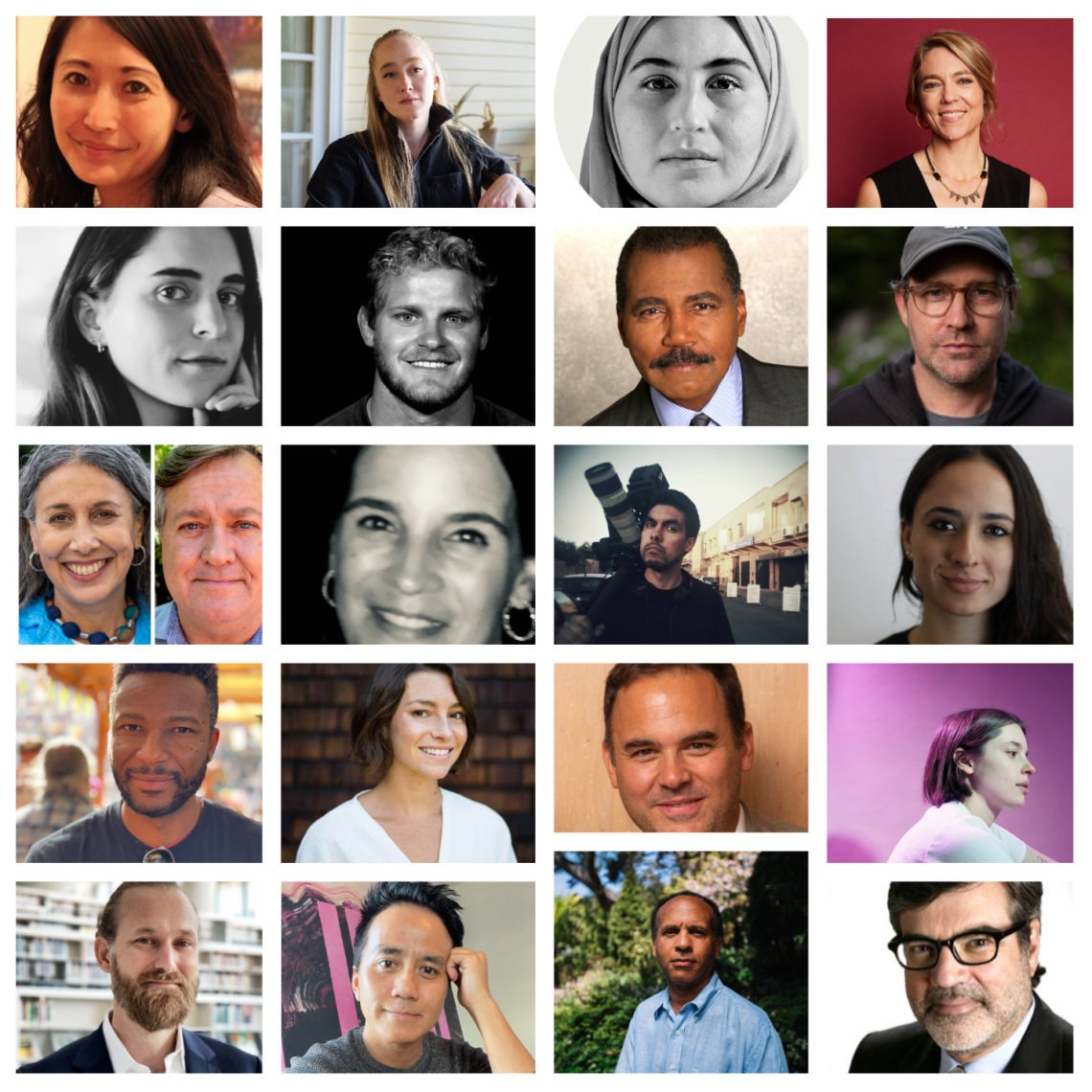
From top left to right: Emily Taguchi, Luisa Conlon, Yousur Alhlou, Singeli Agnew, Kathryn Hurd, Michael Milano, Bill Whitaker, Jeff Plunkett, David Barstow and Geeta Anand, Marjorie Mcafee, Roberto Daza, Gisela Pérez de Acha, Durrell Dawson, Molly Forster, David Gelles, Ellie Lightfoot, Japhet Weeks, Tommy Nguyen, David Thigpen and David Corvo.
Our reporting on China initiative, co-taught by New York Times reporters Edward Wong (’98) (also an Advisory Board member) and Amy Qin, had a great launch. Marissa Muller (‘24) was named this year’s China Reporting Fellow. We’re raising funds for the spring course and beyond through a generous matching-gift from donor Bak Chan. Donate here.
Here are some of the highlights from our prolific journalism community. I share these knowing it is impossible for us to feature all of the accomplishments in this limited space, so I urge you to follow our social media channels to learn of our community’s important work and awards in real time.
Partnership News
With political disinformation posing a continued threat to democracy, our ambitious new multi-disciplinary campus initiative Our Better Web is advancing efforts to study and combat online harms. The leadership of the initiative, launched in April, began work this month on a white paper about how to combat “deepfakes,” which are videos of individuals that appear to be real but are manipulated using artificial intelligence software.
I’ll be working together with Berkeley Law Dean Erwin Chemerinsky; Professor in Electrical Engineering & Computer Sciences and the School of Information Hany Farid; Professor of Public Policy and Director of the new Center for Security in Politics Janet Napolitano; Associate Provost of the Division of Computing, Data Science, and Society Jennifer Chayes; and Director of the CITRIS Policy Lab Brandie Nonnecke to write and publish this paper ahead of the presidential election.
The Our Better Web initiative also involves producing solutions-oriented journalism about disinformation and misinformation. The journalism produced by students in the Digital Accountability class held at Berkeley Journalism this spring has been aired on KGO, Futuro Media’s Latino Rebels and on two shows on KALX. The multidisciplinary class that brought students from law, computer science and public policy together with journalism students at our school, was taught by Queena Kim and Aaron Glantz.
“American Insurrection,” our collaboration with FRONTLINE and ProPublica about the threat posed by militia groups, white supremacists and other extremist groups continues to win acclaim. In addition to winning a George Polk Award, it recently won an Edward R. Murrow Award from the Radio Television Digital News Association in the Feature Documentary category, and was nominated for a News and Documentary Emmy Award. We’re so honored to share these awards with our partners.
Student News

Jessica De La Torre (’23)
The National Association of Black Journalists UC Berkeley Chapter produced and hosted “Comrade Sisters: Women of The Black Panther Party.” It was emceed by Williamena Kwapo (’23) with Corey Rose (‘23) as moderator after stepping in for Angela Davis. Seven campus units co-sponsored and hundreds attended the standing-room-only event. Watch it here.
José Andrés Fellow Jessica De La Torre‘s (’23) investigation on teenage farmworkers was published in Teen Vogue. Among the alarming facts in De La Torre’s story is how the agricultural industry relies on the labor of young people, often working with false papers and often to the detriment of their education, to get food from the fields onto our tables. De La Torre’s story, written through the informed lens of personal experiences and those of farmworkers as young as 15, was funded by a $10,000 gift by Andrés to our 11th Hour Food and Farming Journalism Fellowship.
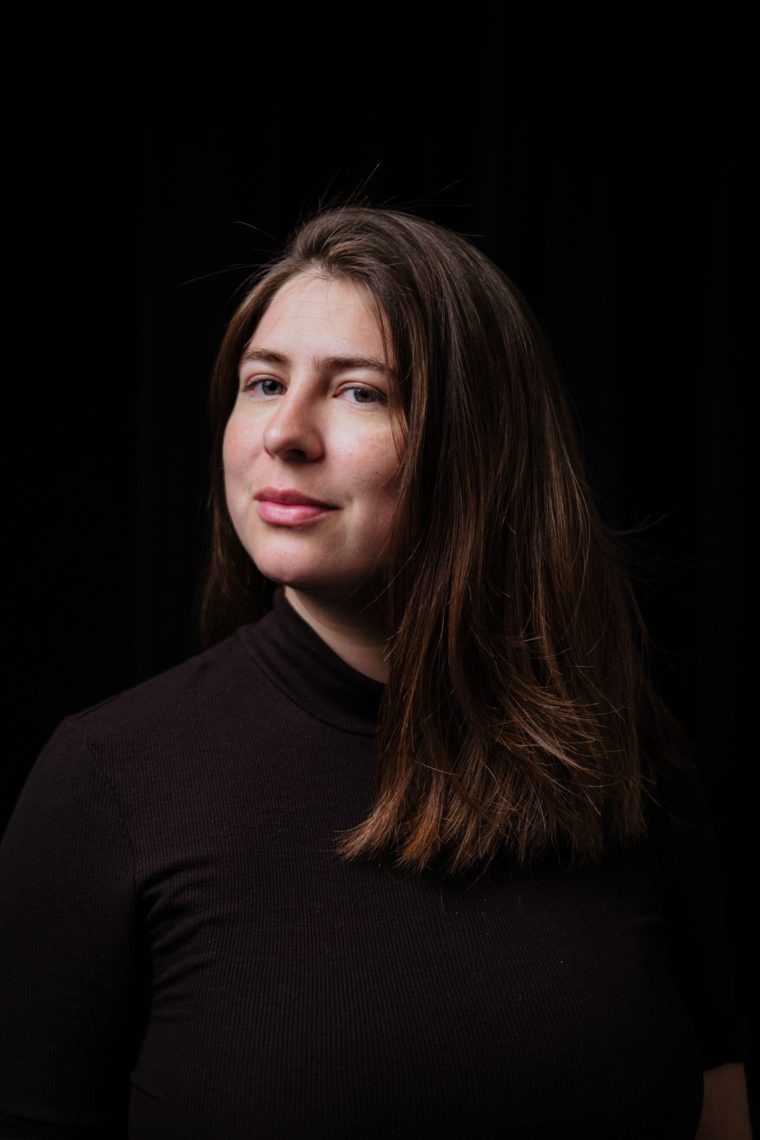
Semantha Raquel Norris (’23). Photo Kori Suzuki (’23)
Irene Benedicto (‘23) broke the news on how Russia is transporting Ukrainian orphans over the border, violating international law, as a summer intern at BuzzFeed News. Wangyuxuan Xu (’23) and Laura Garber‘s (’23) documentary short “Living Dictionary: Cantonese,” recently featured in the South China Morning Post, was selected to screen at the 2022 San Francisco Short Film Festival in October. Semantha Raquel Norris‘ (’23) powerful story “The Invisible Economy” ran in Bay News Rising. Anabel Sosa‘s (’23) year-long investigation into the implications that a lawsuit between a death doula and the California Cemetery and Funeral Bureau will have on the future of death care in the state ran in the Los Angeles Times.
Scholarship News:
Chris Chang, MJ Johnson and César Rojas (‘23) were awarded scholarships from the San Francisco/Northern CA Chapter of The National Academy of Television Arts and Sciences. Julia Métraux (’23) was awarded an American Association of People with Disabilities and NBCUniversal Tony Coelho Media Scholarship. The scholarship honors students with disabilities who are interested in increasing disability representation in their careers. Investigative journalist Nazmul Ahasan (’23) was named one of six journalism students of South Asian heritage awarded the 2022 South Asian Journalists Association Scholarship. Williamena Kwapo (‘23) was named the Litke Fellow in International Reporting. The fellowship was established in 2022 by Mark Litke, an award-winning television correspondent who for

Iqra Salah (’23). Photo: Jesse Foley-Tapia (’23)
three decades reported from around the world for ABC News. He studied at Berkeley Journalism in the early 1970s.
Kathryn Styer Martínez and Katie Rodriguez (‘23) were named Jim Marshall Fellows in Photojournalism. The funding is provided to the school by former reporter and legendary ad-man Jeff Goodby and Jim Marshall’s long-time assistant and heir Amelia Davis. Martínez (’23) was also named an Ñ Awards finalist from the National Association of Hispanic Journalists.
William Jenkins and Myah Overstreet‘s (’23) documentary short “The Oakland Coliseum: Past, Present and Future” screened at the Bay Area Media Maker Summit in October. Bulgarian-Turkish filmmaker and photojournalist Michaela Vatcheva (’22) and Kori Suzuki (’23), a Japanese American documentary photographer and audio producer, were selected to attend the prestigious Eddie Adams Workshop in upstate New York in October.
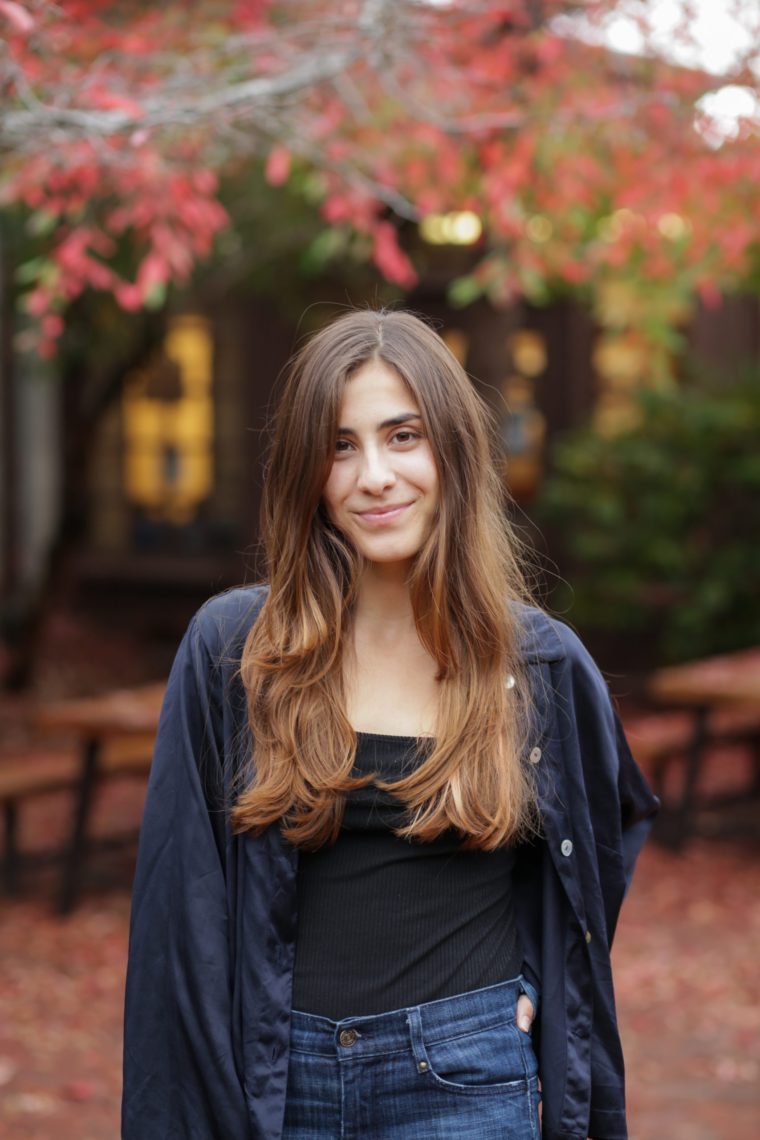
Anabel Sosa (’23)
Iqra Salah (’23) — a former reporter and researcher for the BBC in Kenya covering breaking news in Central and East Africa — was named a Pulitzer Center Reporting Fellow. Her project will look at stateless people in Zimbabwe. Salah and Linus Unah (‘23) are also Mastercard Foundation Scholars, a campuswide program which covers the educational costs of master’s-degree aspirants from sub-Saharan Africa. Lauren DeLaunay Miller (‘23) was awarded the 2022 Banff Mountain Book Competition Climbing Literature Award for her book “Valley of Giants: Stories from Women at the Heart of Yosemite Climbing.” Miller traveled to Banff, Alberta, Canada, in November to give a presentation about women’s representation in the outdoors and accept this prestigious award.
Help support the incredible work of our students by making a tax-deductible donation to our Fine Cut Fund today. The fund supports documentary and multimedia projects and helps defray the hard costs of production — travel and shooting expenses, outlays for equipment and research.
Faculty Publishing/Awards
In his latest book, lecturer Adam Hochschild, a renowned journalist who has taught at the school for three decades, delivers a harrowing portrait of America in 1917-21, rife with racist violence, xenophobia and political repression abetted by the federal government, writes The New York Times. It also made The Washington Post’s “year’s best memoirs, biographies, history and more” list.
Jennifer Redfearn was selected for the American Film Showcase, the premier American film diplomacy program of the U.S. State Department. After the PBS/Independent Lens broadcast of her recent film, “Apart,” Redfearn worked with Independent Lens and Represent Justice on a community screening series. They screened the film in over 100
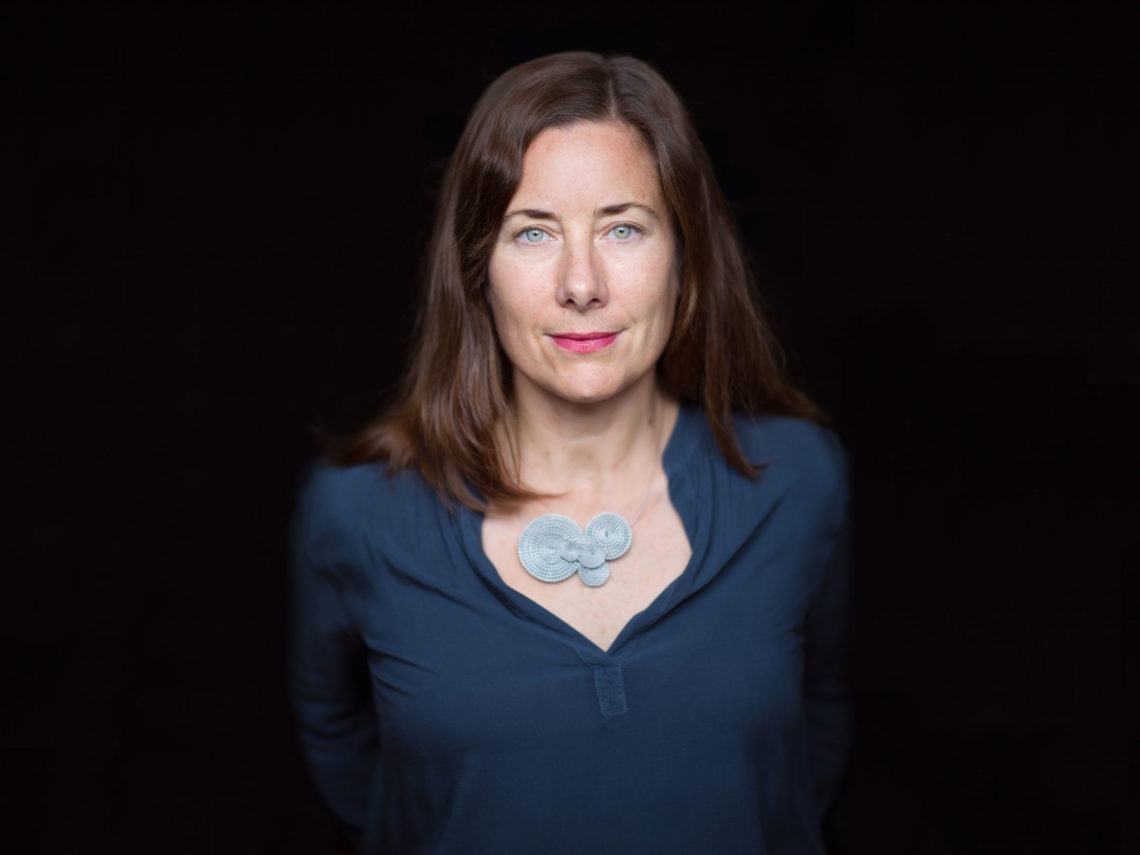
Jennifer Redfearn
communities, facilitating dialogue around how mass incarceration has impacted women.
Ken Light’s photographs are featured in a new book “Presence: The Photography Collection of Judy Glickman Lauder,” which celebrates photography’s ability to capture the human experience. Light’s work is included along with photographers such as Sebastião Salgado, Henri Carter Bresson, Richard Avedon, Gordon Parks and others. The work is also exhibited at the Portland Museum of Art in Maine through Jan. 15. Light also had a one-person show of photographs from his book “Midnight La Frontera” at the Art Intersection Gallery in Gilbert, Arizona. In mid-October, Light traveled to Ohio and Pennsylvania for his Guggenheim Fellowship.
Shereen Marisol Meraji’s first year audio track students covered the UC academic worker’s strike. Their stories ran locally on KALX and KQED’s The Bay podcast, and statewide on The California Report. The strike is being referred to as the largest work-stoppage in the history of American academia. Meraji reported her own long-form audio story for the new podcast series, Little America, hosted by Kumail Nanjiani. The series is about the immigrant experience in the United States.
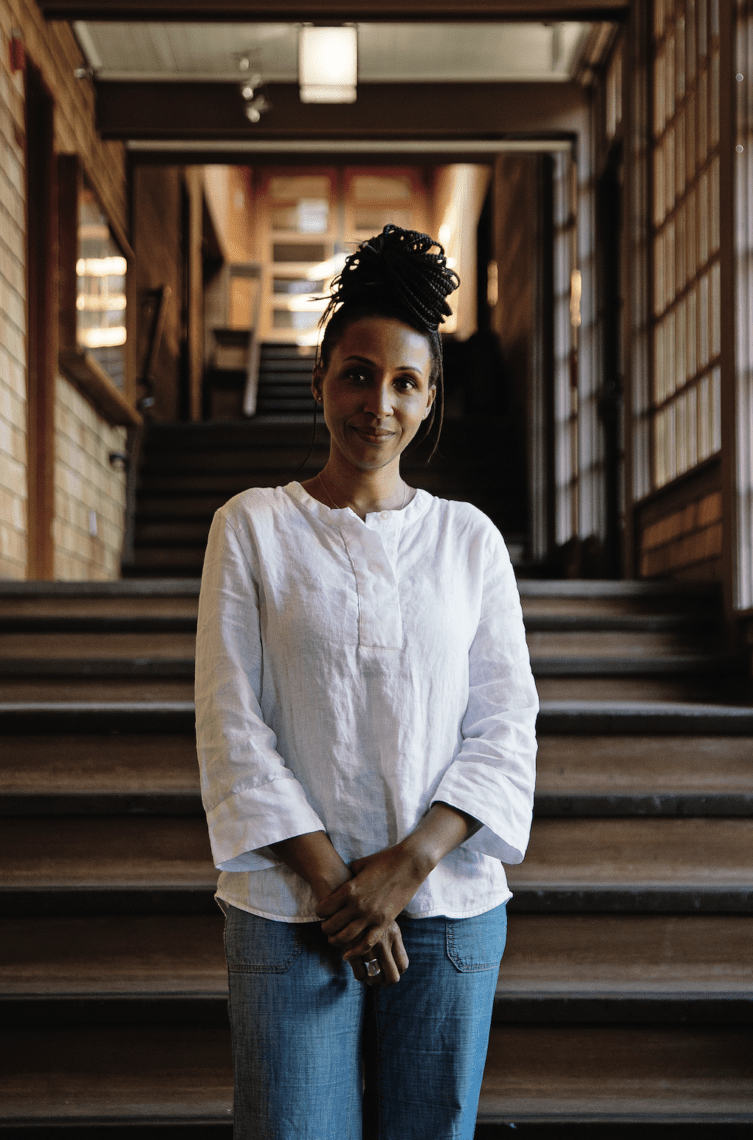
Lisa Armstrong. Photo: Clara Mokri
Mark Danner reports on “The Slow-Motion Coup,” which he says drives news coverage, elects candidates and has already gone far toward leaching from our democracy the one element indispensable: the legitimacy of our means of conferring power, in The New York Review of Books.
Edward Wasserman ponders journalists ‘squirreling away’ material from frontline news beats for books, in the San Francisco Chronicle.
Lisa Armstrong reported on a mother watching helplessly as her teenage boy deteriorates in a Texas youth prison, in The Texas Tribune. Lola Proctor (‘23) contributed reporting.
Mark Schapiro has launched a new weekly column examining the climate emergency through the lens of media coverage — what the press is doing well, where the gaps are and ideas for timely stories on the accelerating crisis, for Capital & Main.
If you haven’t yet, be sure to read two powerful books published earlier this year: “The Geometry of Life”— the first photography monograph by award-winning visual storyteller Richard Koci Hernandez, and Elena Conis’ (’04) “How to Sell a Poison: The Rise, Fall, and Toxic Return of DDT.”
Our Emeriti Just Keep Giving Back
Emeritus professor (and founder and executive editor of San Francisco’s Mission Local) Lydia Chavez and her three siblings—all graduates of UC Berkeley—are creating the Manuel and Geraldine Chavez Latin American fellowship in honor of their parents.
The fellowship means students will have the opportunity to work as international correspondents reporting from Latin America as part of the 2023 spring semester course on Reporting on Latin America. Students will learn how to listen, observe, and cultivate professional reporting relationships, to operate safely in an unfamiliar setting, and to be attentive to the local culture and issues important to sources.
Our Excelling Alumni

Sarah Cahlan, Emma Brown, Ariel Plotnick and Alsanosi Adam.
Sarah Cahlan (‘19), Ariel Plotnick (‘18) and Emma Brown (’09) were among the staff at The Washington Post awarded the Pulitzer Prize for Public Service for coverage of the costs, causes and aftermath of the Jan. 6 insurrection. And Alsanosi Adam (’16) of NPR was named a Pulitzer Prize finalist in Audio Reporting for “compelling, accessible and empathetic stories on the complicated war and threats to democracy in East Africa.” Read more here.
Co-directors Ley Heimgartner and Cameron Nielsen‘s (’22) thesis film “Washed Ashore,” about the mysterious sudden die-off of Pacific gray whales, was published by Los Angeles Times Short Docs. Don’t miss their stunning drone videography and motion graphics.
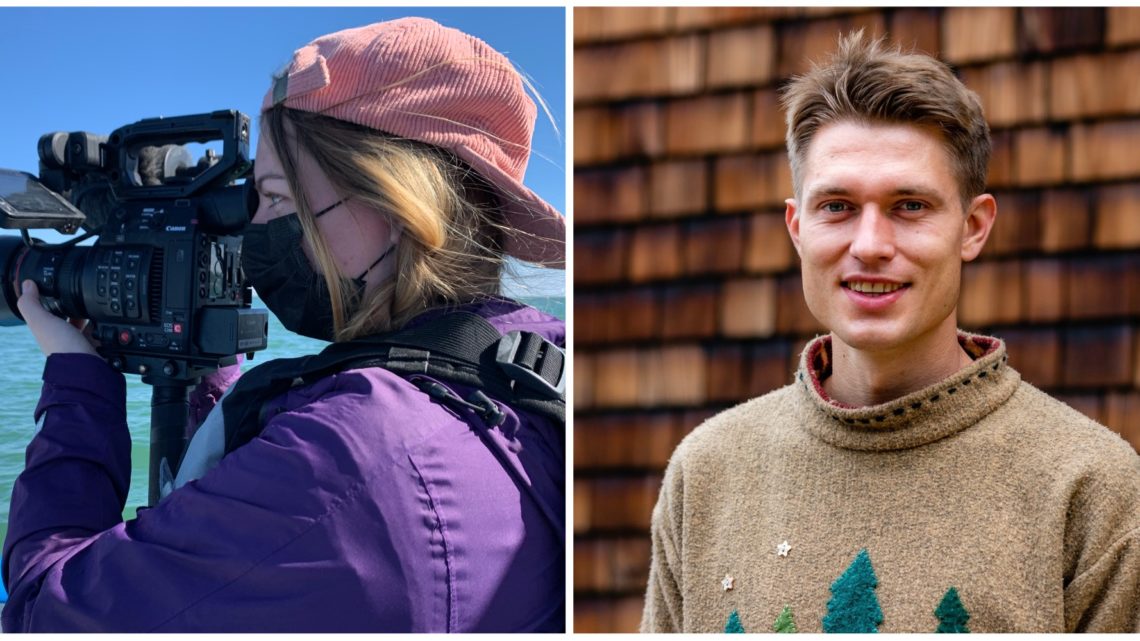
Ley Heimgartner and Cameron Nielsen (’22)
Megan Bergeron (22) was a keynote speaker and presented her thesis film “Messengers,” about the mental health crisis in high schools, at the California Association of School Counselors’ annual convention, to a group of 1,200 counselors and state officials.
Several students and alumni worked on an international feature-length documentary from the Center for Investigative Reporting that premiered at the Toronto International Film Festival in September. “The Grab” follows journalist Nate Halverson as he uncovers the money, influence, and alarming rationale behind covert land grabs by some of the world’s most powerful countries.
Associate Producers Mallory Newman (‘19), Emma Schwartz (‘19) and JoeBill Muñoz (‘19) were among the J-Schoolers who worked on it as well as Yinuo Shi (‘21), Buddy Terry (‘23) and Myah Overstreet (‘23).
Award-winning producer/director Pete Nicks (’99) — celebrated for his cinema vérité style — is directing “Underrated“, featuring the breakout story of NBA superstar Stephen Curry. Nicks and Sean Havey (’14) and Academy Award nominee Ryan Coogler (“Creed,” “Black Panther”) are producing for Apple TV+.
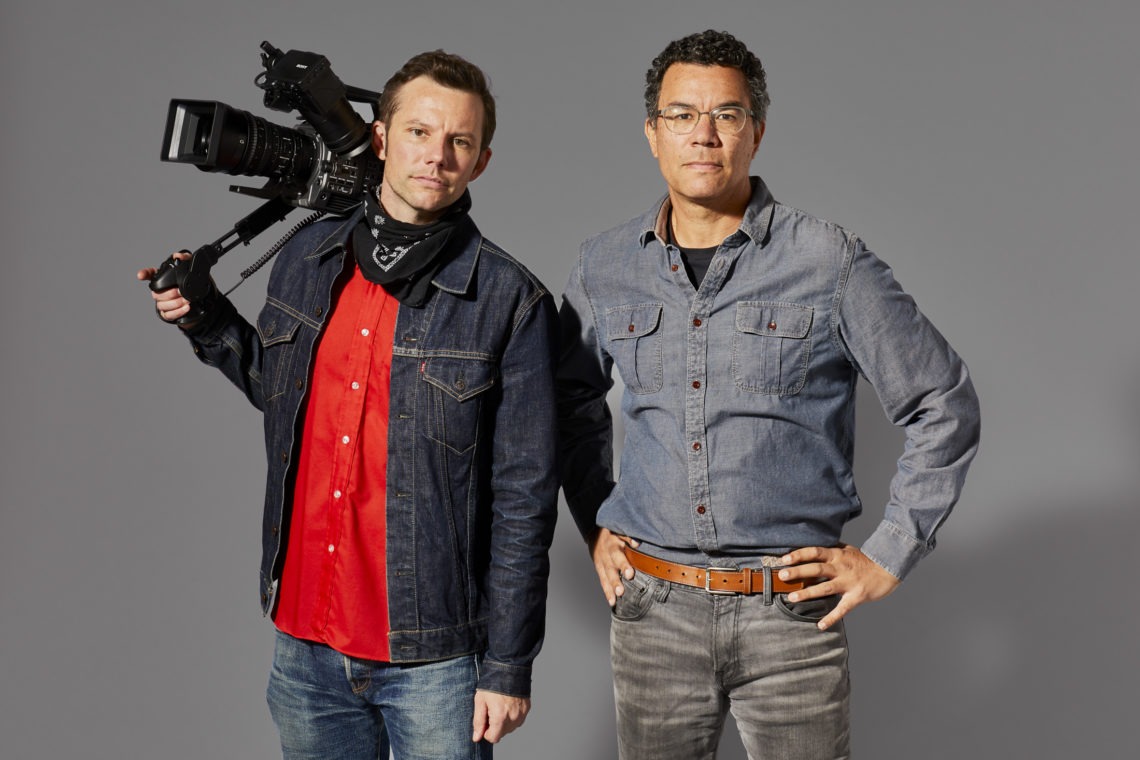
Sean Havey (’14) and Pete Nicks (’99)
Traci Curry (’05), the Academy Award-nominated co-director and producer of the Showtime feature-length documentary “Attica,” was named a duPont Award finalist. Read Kayla Henderson-Wood‘s (’23) interview with her here.
Erin Chessin’s (’21) thesis documentary “Believe In Me”— about a prominent NCAA Division I runner and her teammates exposing their abusive coach — is screening on Prime Video.
Serginho Roosblad (’18) was named to DOC NY’s annual “40 Under 40” list. Now in its fifth year, the list shines a spotlight on emerging documentary talent. Roosblad is an Emmy Award-winning documentary filmmaker, journalist and photographer, who is part of the Associated Press’ Global Investigations team.
Assistant Professor Shereen Marisol Meraji facilitated and produced the national broadcast of Izzy Bloom and Elena Neale-Sacks‘ (’22) thesis project “Lost In Translation” on NPR’s Code Switch in August. It’s a deeply personal story about Izzy’s mom’s experience as a Japanese immigrant, wanting to raise her children bilingual, but facing pushback when her son was diagnosed with a rare genetic syndrome.
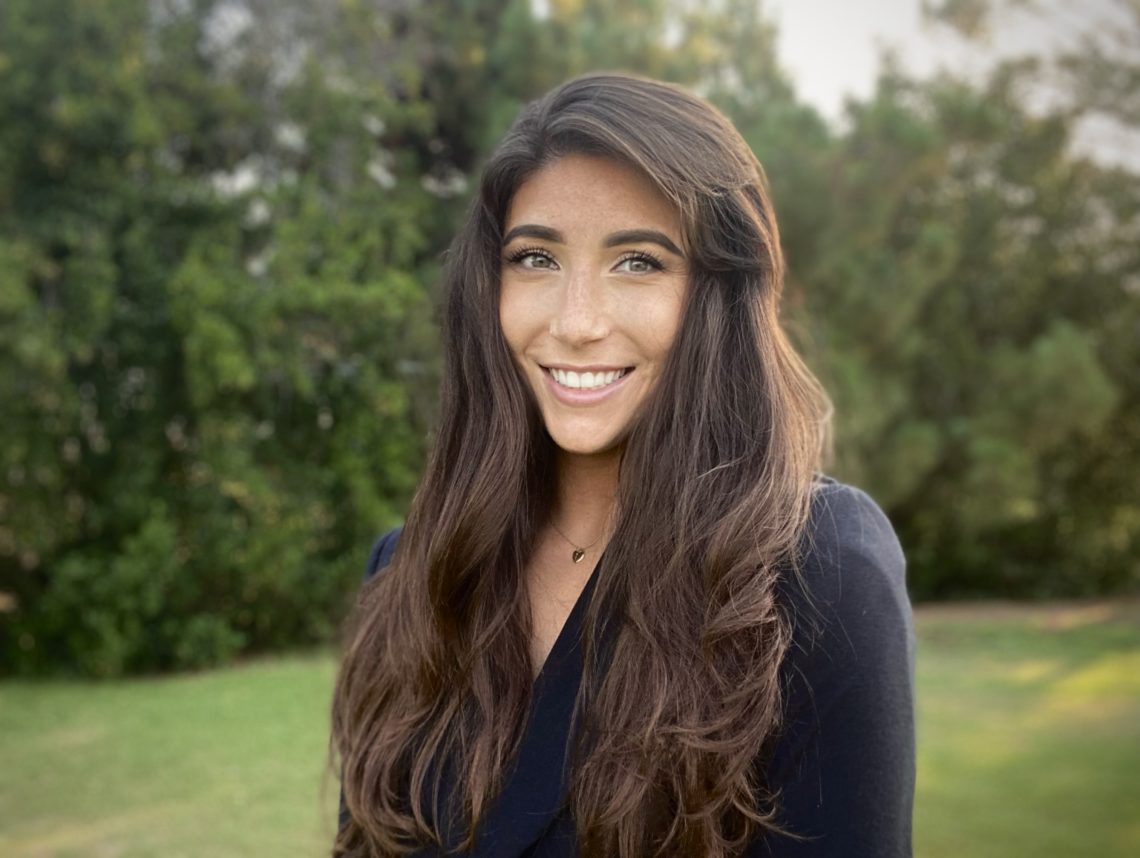
Erin Chessin (’21)
Irene Benedicto (’23) profiled producer/director Michael Milano (’15) who credits the J-School — and three very special professors — for changing the trajectory of his life.
Violet Du Feng‘s (’04) directorial debut “Hidden Letters” about Nüshu — an ancient, secret women-only language originating in China that continues to inspire young women in patriarchal societies — premiered at the 2022 Tribeca Film Festival. The film was shortlisted for Best Feature at this year’s IDA Documentary Awards and has screened at more than 30 festivals around the globe. It will be released in U.S. theaters starting Dec. 9.
Emilie Raguso (’06) launched The Berkeley Scanner, an independent online news outlet that provides authoritative daily public safety news for Berkeley.
Ari Sen (’22) and Derêka K. Bennett‘s (’22) year-long investigation “Tracked: How colleges use AI to monitor student protests”— revealing for the first time that as more students have embraced social media as a digital town square to express opinions and organize demonstrations, many college police departments have been using taxpayer dollars to pay for services to monitor what they say — ran on the front page of The Dallas Morning News in September. It all began in David Barstow’s Blockbuster Investigative Reporting Seminar.
Meg Shutzer (‘20) and Rachel Mueller’s (‘20) thesis film “8 Days at Ware,” had its early premiere at the Double Exposure Film Festival in Washington, D.C., in October. The documentary led to the front page New York Times story referenced above.
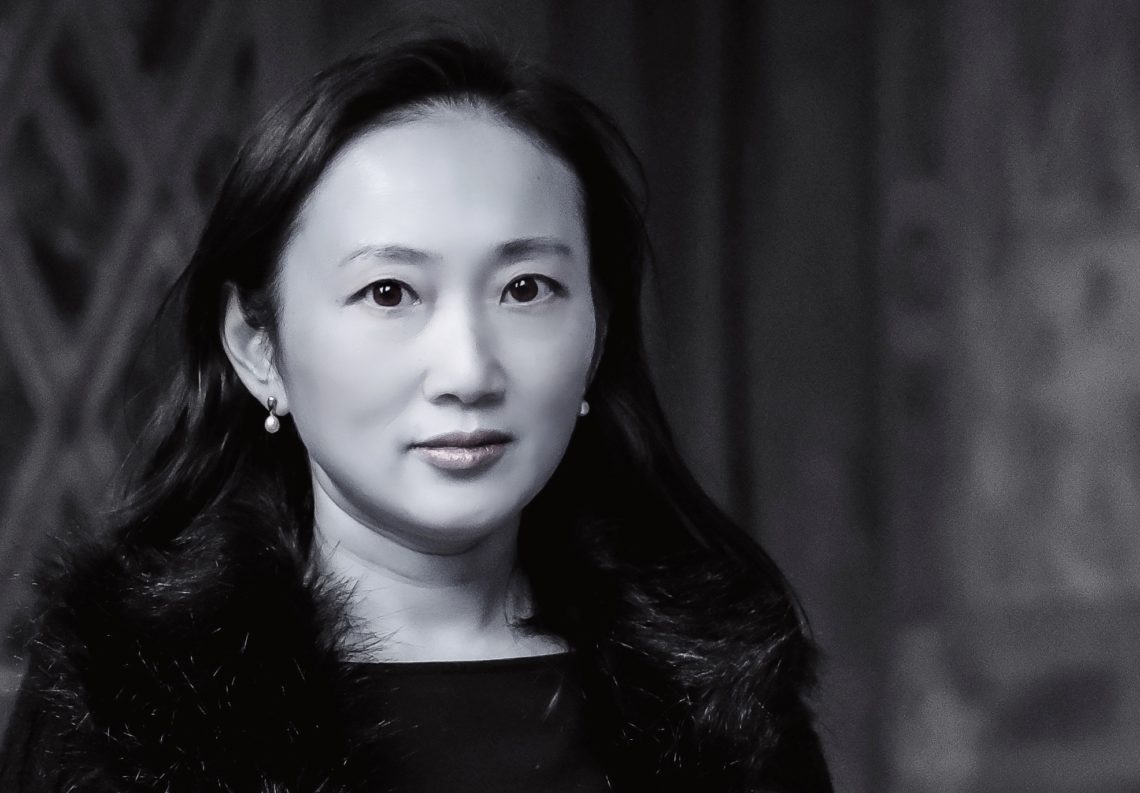
Violet Du Feng (’04)
Madeleine Bair (‘11), founding director of El Tímpano, an award-winning local journalism organization designed with and for Latino and Mayan immigrants, was featured in a profile in SF Gate, which asked, “Is this text-message-first news org from Oakland the future?” It will soon be expanding to Contra Costa County and southern Alameda County.
Marjorie McAfee (’06) was awarded a Scripps Howard Journalism Award for Excellence in Broadcast National/International Coverage for “Out of Bounds.” The series exposed how the NFL pushed doctors to use a highly controversial practice called “race-norming” which skewed compensation for head injuries along racial lines in the league’s concussion settlement.
Julie Caine’s (‘07) “Throughline” recently won best in category at the Peabody Awards for the show’s “magisterial” 3-part miniseries on Afghanistan.
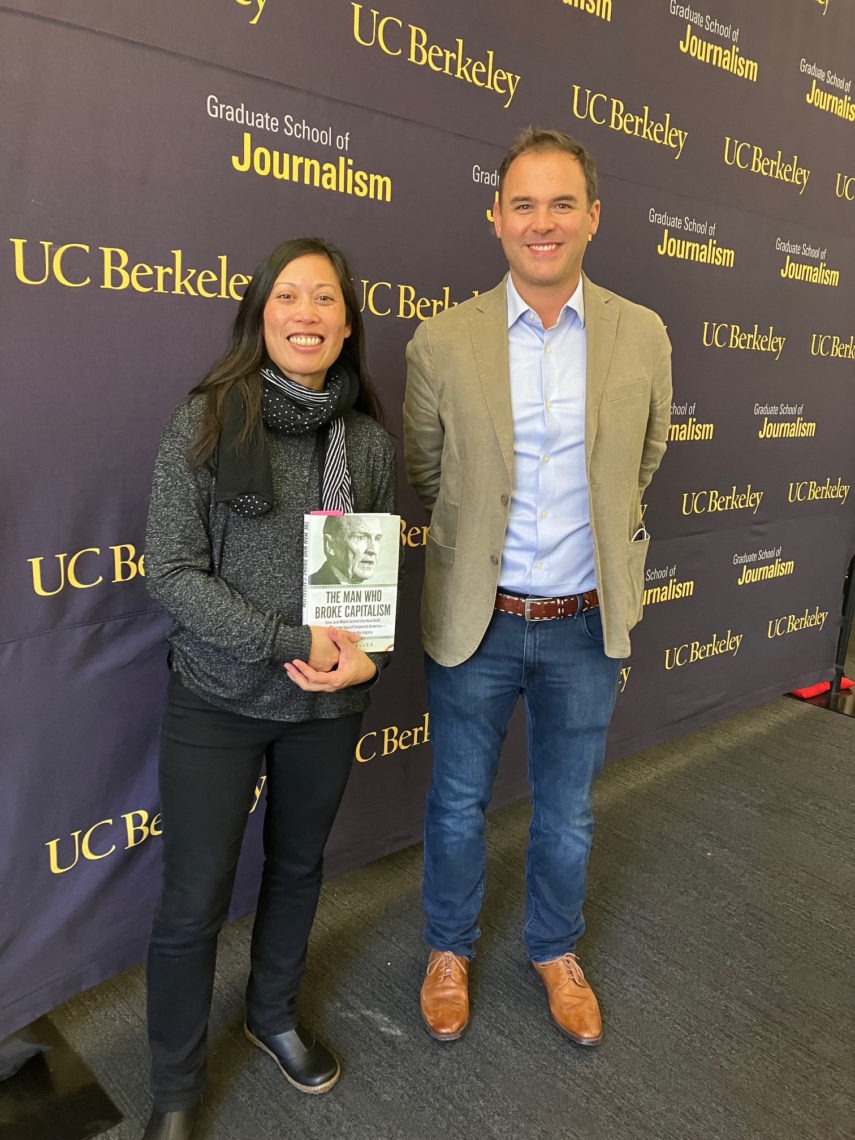
Bernice Yeung and David Gelles (’08)
Ariel Plotnick (’18), an audio producer at The Washington Post was named a duPont finalist for “A post-Roe America: Continuing Coverage of Abortion.”
Jocelyn Tabancay’s (‘22) multimedia thesis project “Drying up: inside the Californian communities without enough water,” published on the Guardian website in November.
Marco Torrez (‘21), a multimedia journalist at KGET17, an NBC affiliate station in Bakersfield, California, was awarded regional and national RTDNA Edward R. Murrow awards for breaking news coverage of the Wasco shooting that left five people dead including a Kern County SWAT deputy during an hours-long standoff.
In book news: David Gelles (’08), New York Times reporter and “Corner Office” columnist returned to North Gate Hall to talk about his new book, “The Man Who Broke Capitalism” in October. Bernice Yeung, managing editor of the Investigative Reporting Program, was his thoughtful, thoroughly researched interlocutor. Becca Andrews‘ (’15) new book, “No Choice The Destruction of Roe v. Wade and the Fight to Protect a Fundamental American Right,” is out now. Rebecca Solnit’s (’84) latest book, “Waking Beauty” expanding, transforming, and subverting the magical tale of Sleeping Beauty, revitalizes this classic story. Josh Chin’s (’07) new book, “Surveillance State: Inside China’s Quest to Launch a New Era of Social Control” is out now. Ali Winston’s (‘10) first book, “The Riders Come Out at Night: Brutality, Corruption, and Cover-up in Oakland,” will be released in January.
Pulitzer Prize finalist Brett Murphy (’16), published a stunning multimedia story about a young mother from Illinois with a severe learning disability named Jessica Logan and what happened after her baby died in the middle of the night, in ProPublica in November. “WORDS OF CONVICTION: How Jessica Logan’s Call for Help Became Evidence Against Her,” reveals the use of a well-kept secret among police and prosecutors called “911 call analysis” to divine truth and deception — and guilt and innocence — from the word choice, cadence and even grammar of people reporting emergencies across the country. Tracy Weber (’89), ProPublica’s managing editor, Murphy said, played a critical role in shaping the reporting and storytelling. It’s a must read.
News From Our Investigative Reporting Program (IRP)
Since the start of the semester, the IRP has published more than a half-dozen major investigations. Yasmin Rafiei, the IRP’s reporter in residence, had her yearlong investigation, “When Private Equity Takes Over a Nursing Home,” published in The New Yorker in August.
Margie Cullen (‘22) and Anne Marshall-Chalmers’ (’22) investigation “Is High School Running in Need of a Reckoning?” published in Runner’s World. The story, about female runners experiencing restrictive eating, irregular menstrual cycles, and long-term bone damage began in David Barstow’s “Developing Your Blockbuster Investigative Story” class.
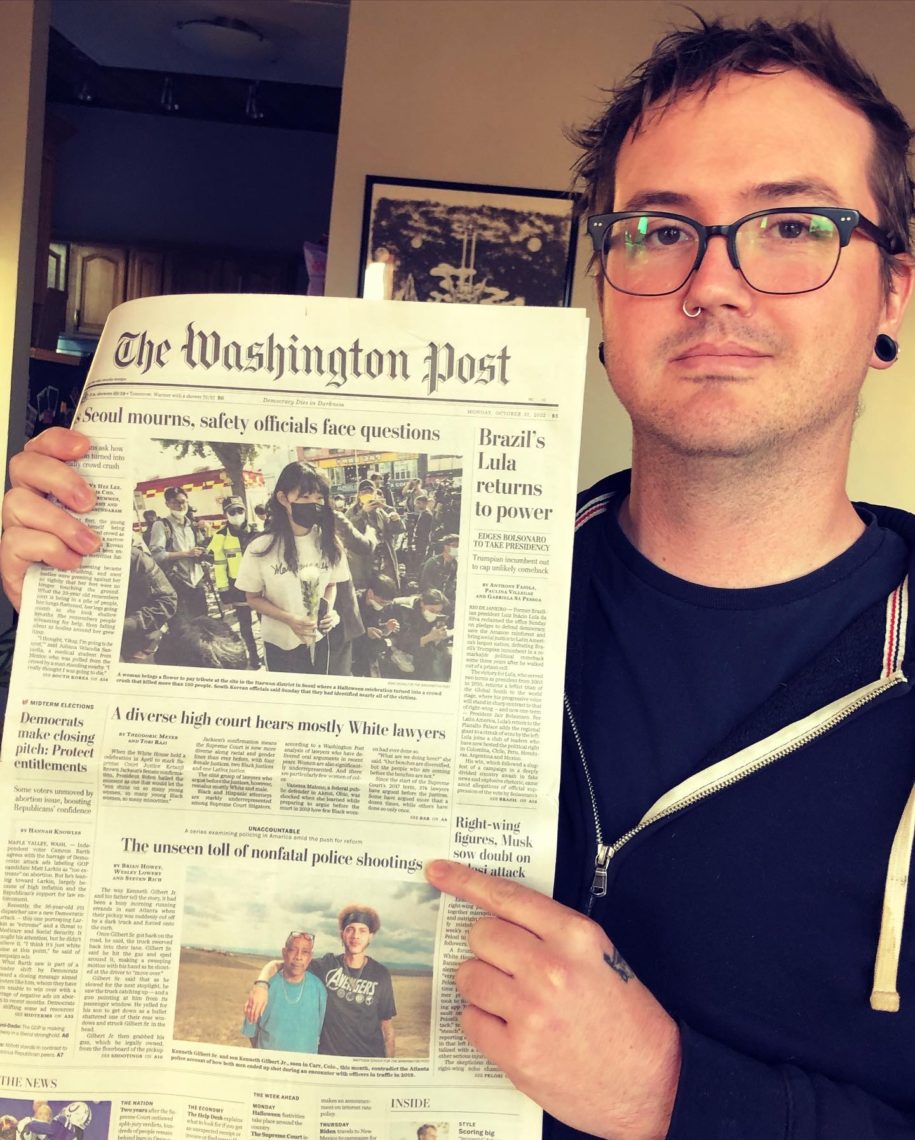
Brian Howey (‘22) and the print copy of his front page investigation into non-fatal police shootings.
We have continued our partnership with the UC Berkeley Human Rights Center to teach students how to use open source intelligence (OSINT) for investigative reporting. Students from the previous academic year used these techniques to report out stories on birth control misinformation for Mother Jones and the movement to restrict access to contraceptives for Reveal from The Center for Investigative Reporting.
IRP student reporters also published stories about aging in America for USA Today, Grist, Inside Climate News, the San Francisco Chronicle, CapRadio and PRX’s “The World.” Oakland North and Richmond Confidential reporters also published a number of stories this semester, including some critical pre- and post-election coverage that wasn’t reported on by any other media outlets.
Support investigative projects— conceived and executed by Berkeley Journalism students at the Investigative Reporting Program (IRP) here.
In Conclusion
We are deeply committed to giving our remarkable students the chance to move unhindered into the profession. To stay with it over the years. And to develop into the leaders we believe that they truly are. This is how durable change happens.
Berkeley Journalism is ready to take big, bold, transformative steps to bring new voices, new leaders, and new cultural competencies to the field, to renew journalism’s role in a democratic society, and to prepare these future storytellers to face and help solve the enormous challenges that lie ahead.
In this season of gratitude, I send special thanks to our dedicated staff and everyone who plays a part in making this resilient community such a strong one. And to each and every one of you who has supported our efforts. Together we are making a difference in this world. Please consider donating today.
Warmly,
![]()
Geeta Anand
Dean and Professor
Robert A. Peck Chair
Berkeley Journalism
About this communique: The Dean’s Letter is a quarterly email newsletter sent to alumni, donors, students, faculty, media partners and others in Berkeley Journalism’s broad community. If you’d like to follow ongoing developments in real-time, find us on Facebook, Twitter, LinkedIn and Instagram. Have alumni news or accomplishments to share? Please send it, along with a high-res headshot to journalism@berkeley.edu. Are you hiring? Please reach out to career.services@berkeley.edu. Want to learn more about donating to the school? Contact stevekatz@berkeley.edu.
